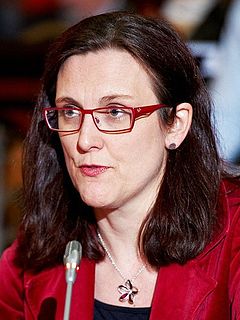A Quote by George Monbiot
The government argues that without a price, the living world is accorded no value, so irrational decisions are made. By costing nature, you ensure that it commands the investment and protection that other forms of capital attract.
Related Quotes
Value in relation to price, not price alone, must determine your investment decisions. If you look to Mr Market as a creator of investment opportunities (where price departs from underlying value), you have the makings of a value investor. If you insist on looking to Mr Market for investment guidance however, you are probably best advised to hire someone else to manage your money.
Tis a Mistake to think this Fault [tyranny] is proper only to Monarchies; other Forms of Government are liable to it, as well as that. For where-ever the Power that is put in any hands for the Government of the People, and the Preservation of their Properties, is applied to other ends, and made use of to impoverish, harass, or subdue them to the Arbitrary and Irregular Commands of those that have it: There it presently becomes Tyranny, whether those that thus use it are one or many.
Nature consists of facts and of regularities, and is in itself neither moral nor immoral. It is we who impose our standards upon nature, and who in this way introduce morals into the natural world, in spite the fact that we are part of this world. We are products of nature, but nature has made us together with our power of altering the world, of foreseeing and of planning for the future, and of making far-reaching decisions for which we are morally responsible. Yet, responsibility, decisions, enter the world of nature only with us
Capital requires protection, as do the institutions through which it operates. As capital expands its operations, the state that is associated with its protection must develop its capacity for autocratic control. Thus, the "Free World" increasingly resembles a dreary string of heartless police states.
We have worked to make our trade negotiations more transparent and to negotiate value-based agreements. We have listened to concerns, for example by carrying out a reform of the investment protection system and setting out to create a multilateral investment court. Our world is rapidly changing and this creates a multitude of concerns.
When you buy a meal and you pay a fair price for it, are you doing this to ensure that the employees get health care? When you walk into Mickey D's and you buy a Big Mac, do you ask them, "By the way, is this thing costing enough so that you get health care here? By the way, is this Big Mac costing enough so that you get a pension here?" Do you think any of that when you go buy a Big Mac? No. You want it to be as cheap as it can be. That's why you're there.





































